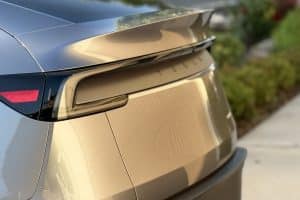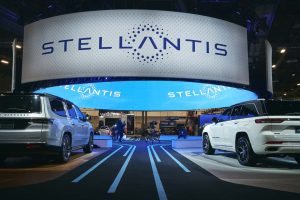Tesla’s demand for automotive batteries has driven supplier Panasonic’s profitability forecast up 30% this year as the Japanese company looks to rebound from lockdowns and lackluster demand in 2020 caused by the coronavirus. Additionally, Panasonic executives revealed that the battery manufacturer would set up a test line in Japan for Tesla’s 4680 battery cells, a new battery unveiled by Tesla in September 2020.
Panasonic is looking to utilize the growing demand for electric cars in the United States and China to offset a tough 2020 caused by the coronavirus pandemic. Due to its long and strong partnership with Tesla, Panasonic plans to leverage the automaker’s popularity in both of the key regions to bring in more profitability, and projections are showing that is exactly what will happen.
Panasonic is expecting its automotive unit to post 50 billion yen in operating profit, Chief Financial Officer Hirokazu Umeda said in a press briefing, according to Reuters. Tesla takes in “nearly all” of Panasonic’s automotive batteries, Umeda said, and they account for around 40% of Panasonic’s total business.
Forecasts for Panasonic’s overall operating profit project 27.6% increases to 330 billion yen, or around $3.034 billion. In Q1 2021, Panasonic posted an operating profit of 31.8 billion yen ($292.43 billion), a 40% decrease compared to the same period in 2020. The biggest factor to this substantial decrease was Panasonic’s weak earnings report from its Life Solutions unit that manufactures lighting and materials for buildings. Automotive components of Panasonic reported profitable figures but were offset by the Life Solutions decreases.
The Automotive unit of Panasonic is where growth and profitability are being recorded. Panasonic plans to begin expanding its product line, and it begins with a test manufacturing line in Japan later this year that will produce Tesla’s cylindrical 4680 battery cells. The cells were unveiled by Tesla last year in September at the company’s Battery Day. Several performance improvements are outlined by Tesla’s new cell. They include a five-times increase in energy density, a 16% increase in range, and an improvement in power output by six times.
The cells will also help reduce manufacturing costs and will contribute to a 14% decrease in price per kWh, bringing electric cars to price parity with their internal combustion engine rivals.
Panasonic is also investing in supply chain management services and recently acquired Blue Yonder, a U.S. supply chain software company, for $7.1 billion.
Analysts project Panasonic’s profitability to hit 327.56 billion yen, slightly lower than the company projects for itself. This is based on estimates from 16 analysts, according to Refinitiv data.





